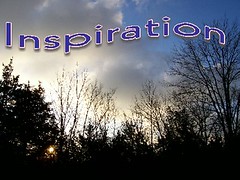 Have you ever wished that you had a writing mentor? Someone who could show you the ropes? Have you ever wished for advice on writing? Inspiration when you are feeling down?
Have you ever wished that you had a writing mentor? Someone who could show you the ropes? Have you ever wished for advice on writing? Inspiration when you are feeling down?
I have found that the greatest inspiration and the most valuable advice comes from viewing the lives of those who have walked in our shoes because it is those who can truly understand us. It is those who can show us the way. So, as we as writers persevere to write on, why not turn back and gain inspiration from other writers who have struggled and eventually succeeded.
Here are ten tips from writers throughout history that I have compiled to challenge, motivate, and inspire us:
Write Simply
My aim is to put down what I see and what I feel in the best and simplest way I can tell it.
Ernest Hemingway – a Nobel Prize winning writer and journalist whose greatest works include For Whom the Bell Tolls and The Old Man and the Sea
Don’t Underestimate Your Readers
No one can write decently who is distrustful of the reader’s intelligence or whose attitude is patronizing.
E. B. White – a writer who is best remembered for her children’s books Charlotte’s Web and Stuart Little
Do Not Be Verbose
As for the adjective, when in doubt leave it out.
Mark Twain – an American author and humorist best known for his books The Adventures of Tom Sawyer and Adventures of Huckleberry Finn
The most valuable of all talents is that of never using two words when one will do.
Thomas Jefferson – the third President of the United States and the principal author of the Declaration of Independence
Use Common Words when Writing for the Common Man
Don’t use words too big for the subject. Don’t say ‘infinitely’ when you mean ‘very’; otherwise you’ll have no word left when you want to talk about something really infinite.
C. S. Lewis – an Anglo-Irish novelist, academic, medievalist, literary critic, essayist, lay theologian, and Christian apologist who is best known for The Screwtape Letters and The Chronicles of Narnia
Tell Your Story – Don’t Worry About Your Writing
If you can tell stories, create characters, devise incidents, and have sincerity and passion, it doesn’t matter a damn how you write.
Somerset Maugham – a playwright, novelist, and short story writer who was reputedly the highest paid author during the 1930s
Be Your Own Critic – Evaluate What You Write
A scrupulous writer, in every sentence that he writes, will ask himself at least four questions, thus: 1. What am I trying to say? 2. What words will express it? 3. What image or idiom will make it clearer? 4. Is this image fresh enough to have an effect?
George Orwell – an English author and journalist who is best known for his satirical novella Animal Farm
Write About What You Know About
When men ask me how I know so much about men, they get a simple answer: everything I know about men, I learned from me.
Anton Chekhov – a Russian short-story writer, playwright, and physician, who is often touted as one of the greatest short-story writers in the history of world literature
Most beginning writers (and I was the same) are like chefs trying to cook great dishes that they’ve never tasted themselves. How can you make a great (or even an adequate) bouillabaisse if you’ve never had any? If you don’t really understand why people read mysteries (or romances or literary novels or thrillers or whatever), then there’s no way in the world you’re going to write one that anyone wants to publish. (This is the meaning of the well-known expression “Write what you know.”)
Daniel Quinn – an American writer and environmentalist who is best known for his award-winning book Ishmael
Make it Original
Observe, don’t imitate.
John M. Ford – an American science fiction and fantasy writer, game designer, and poet who is best known for his Star Trek novels
Your Characters are Key
The test of any good fiction is that you should care something for the characters; the good to succeed, the bad to fail. The trouble with most fiction is that you want them all to land in hell, together, as quickly as possible.
Mark Twain – an American author and humorist best known for his books The Adventures of Tom Sawyer and Adventures of Huckleberry Finn
I try to create sympathy for my characters, then turn the monsters loose.
Stephen King – a horror, suspense, science fiction, and fantasy fiction writer who is best known for novels such as Carrie, Firestarter, and Christine
Be Passionate about Your Writing
No tears in the writer, no tears in the reader.
George Moore – an Irish novelist, short-story writer, poet, art critic, memoirist, and dramatist
====================================
AUTHOR BIO: Cathryn Johnson is passionate about writing. She is currently a resident writer for Top Online Nursing Programs 2010, which researches areas of nursing education, online nursing programs, and healthcare. In her spare time, she enjoys travel, theater, and having fun in the sun.
![]() photo credit: The Story Lady
photo credit: The Story Lady
